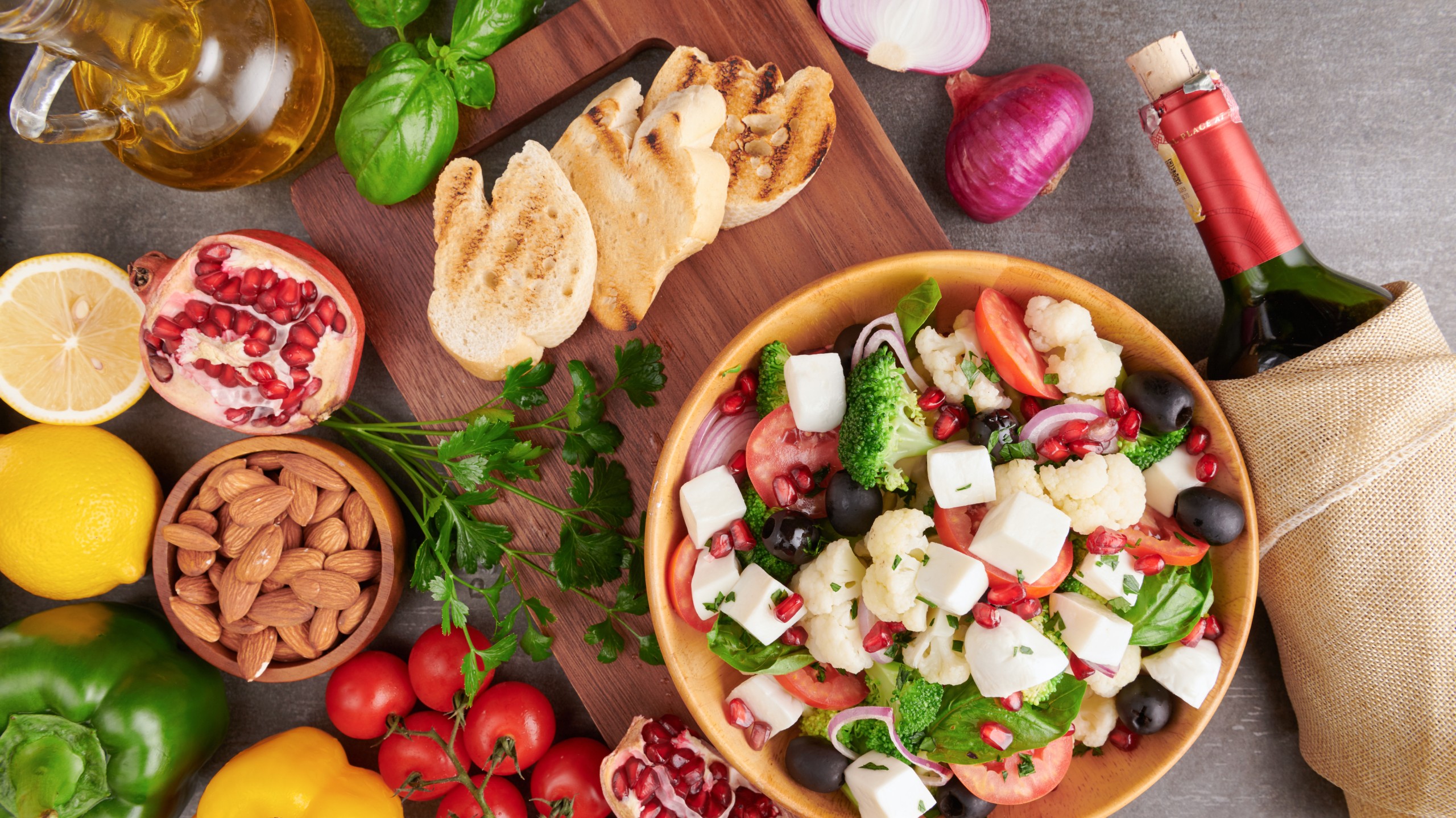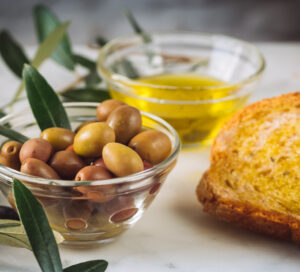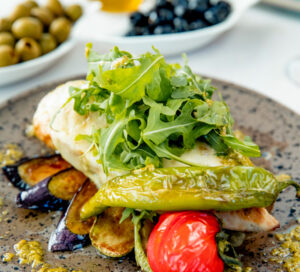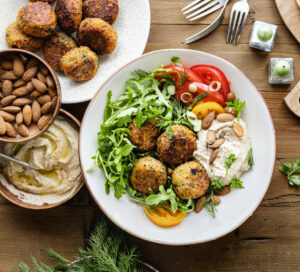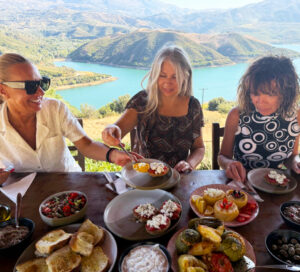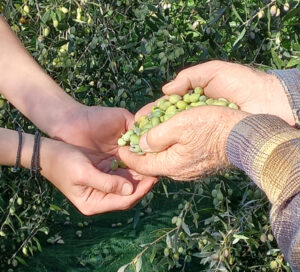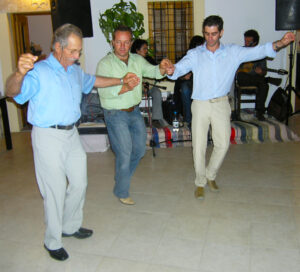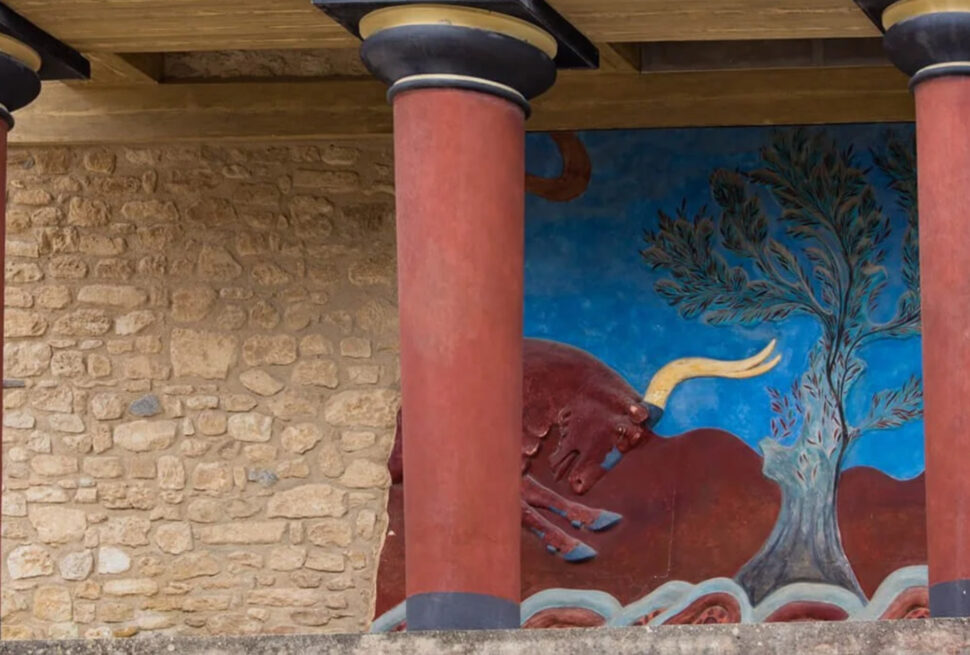Every morning, I watch the elder people in Cretan villages pour golden olive oil over their fresh bread, just as their grandmothers did before them. At 85, 90, even 95 years old, they move through their gardens with the energy of people decades younger, tending to tomatoes, gathering herbs, and sharing stories of a time when food was medicine and every meal was a celebration of life.
This is the real Mediterranean diet — not a trend or a weight-loss program, but a way of living that has nourished people around these ancient seas for thousands of years. And now, after decades of scientific research, we finally understand why it works so well.
The Discovery That Changed Nutrition Forever
In 1958, American scientist Ancel Keys arrived in Crete with a simple question: Why do people here live so long and suffer so little from heart disease?
What he discovered through the legendary Seven Countries Study would revolutionize our understanding of nutrition. Keys found that the healthy diet was eaten along the Mediterranean shores of Italy, former Yugoslavia, and Greece, characterized by a large intake of bread, cereals, vegetables, fruit, and olive oil.
The study followed 12,763 men from seven countries for over 25 years. The results were remarkable: After 15, 25, and 50 years of follow-up, a strong negative relation was observed between adherence to Mediterranean Diet and coronary heart disease mortality.
But here in Crete, the findings were even more extraordinary. Cretans had the lowest mortality rate in the whole world, largely in part to their consumption of local olive oil. Men from Crete had death rates from heart disease that were 17 times lower than those in Finland and 7 times lower than in the United States.
Keys didn’t just discover a diet — he uncovered an ancient wisdom that had been hiding in plain sight.
The Heart of the Mediterranean: Extra Virgin Olive Oil
At the center of this remarkable way of eating stands our liquid gold — extra virgin olive oil from Crete.
The Mediterranean diet, abundant in minimally processed plant-based foods, rich in monounsaturated fat from olive oil, but lower in saturated fat, meats, and dairy products, seems an ideal nutritional model for cardiovascular health.
Modern research has proven what Cretan families have known for millennia. Consumption of olive oil helps reduce total cholesterol, triglyceride, and LDL (bad) cholesterol levels, thus preventing arteriosclerosis. At the same time, it maintains or increases HDL (good) cholesterol levels.
But it’s not just any olive oil — it must be extra virgin, cold-pressed within hours of harvest, the way we make it in Crete today. This preserves the polyphenols and antioxidants that make olive oil a true superfood.
Beyond Olive Oil: The Complete Mediterranean Symphony
While olive oil is the star, the Mediterranean diet is a complete symphony of flavors and nutrients working together.
The traditional pattern includes:
- Abundant plant foods: Fresh vegetables, seasonal fruits, whole grains, legumes, nuts, and herbs
- Olive oil as the primary fat: Used for cooking, drizzling, and dressing
- Fish and seafood: Especially the fatty fish rich in omega-3s from our crystal-clear Mediterranean waters
- Moderate amounts: Small portions of poultry, eggs, and dairy (especially cheese and yogurt)
- Limited red meat: Eaten mainly on special occasions
- Wine in moderation: Usually red wine, enjoyed with meals and friends
The traditional Mediterranean diet was a nutritionally adequate diet with a varying total fat content, low in saturated fat and very low in trans fat, rich in fiber and antioxidant vitamins or flavonoids.
The Science Speaks
The research continues to amaze scientists around the world. Very numerous prospective observational studies and 3 randomized clinical trials, as well as meta-analyses have confirmed the diet’s extraordinary benefits.
The most famous recent study, PREDIMED, followed 7,447 people at high risk for heart disease. Those who ate a Mediterranean diet supplemented with extra virgin olive oil had a 30% reduction in heart attacks, strokes, and cardiovascular deaths compared to those on a low-fat diet.
But the benefits go far beyond the heart:
- Brain health: Protection against cognitive decline and dementia
- Cancer prevention: Lower rates of colorectal and breast cancers
- Diabetes management: Better blood sugar control and insulin sensitivity
- Longevity: Higher chances of healthy aging
- Mental health: Reduced risk of depression
Diet plays a key role in the maintenance and optimal functioning of immune cells. The Mediterranean dietary pattern is an example of a prudent choice of lifestyle and scientifically accepted to help preserve human health.
The Cretan Difference: Why Our Island Leads the Way
But why was Crete so special in the original Seven Countries Study? The Seven Countries Study in Crete examined whether it was olive oil, Mediterranean diet or fasting that contributed to the remarkable health outcomes.
The answer lies in our unique combination:
The Terroir: Crete’s mineral-rich soil, intense Mediterranean sun, and sea breezes create olive oil with exceptional levels of antioxidants and polyphenols.
Ancient Varieties: Our native olive varieties like Tsounati and Koroneiki and the rare, disappearing Chondrolia produce oils with complex flavor profiles and concentrated nutrients.
Traditional Methods: Many families still press their oil the old way, preserving maximum nutritional value. Our animals — goats and sheep — roam freely across mountain slopes and fields, feeding on wild thyme, oregano, and sage. This natural diet creates meat, milk, and cheese with higher omega-3 fatty acids and antioxidants than factory-farmed products.
Lifestyle Integration: Food here isn’t just fuel — it’s social connection, celebration, and spiritual nourishment. When you see the animals grazing naturally on aromatic herbs across our landscapes, you understand why Cretan dairy products taste so rich and are so much healthier.
Religious Fasting: The Greek Orthodox tradition of periodic fasting (over 200 days per year) may contribute to the longevity benefits, creating natural periods of caloric restriction.
Living the Mediterranean Way: More Than Just Food
What makes the Mediterranean diet truly special isn’t just what we eat — it’s how we live.
Seasonality: We eat what nature provides when she provides it. Spring brings wild greens like vlita and stamnagathi from the Messara plains, summer offers tomatoes and basil, autumn delivers olives and wine grapes.
Community: Meals are social events. Whether it’s gathering horta at dawn or sharing a simple glass of wine with cucumber and paximadi at the local kafenio, we cook together, eat together, and linger at the table sharing stories and laughter.
Simplicity: The best dishes use just a few high-quality ingredients. Fresh tomatoes, good olive oil, sea salt, wild oregano, and a squeeze of lemon can create magic — just like the traditional way meat is always served with plenty of vegetables and wild greens.
Mindfulness: We take time to appreciate our food, to taste it, to honor the hands that grew it and prepared it.
Activity: Physical activity is woven into daily life — walking to the market, tending gardens, dancing at celebrations.
The Modern Challenge: Keeping Ancient Wisdom Alive
Today, even in Crete, we face challenges. Fast food, processed products, and busy lifestyles threaten our traditional ways. Recent research addresses the current conceptual and methodological challenges in examining adherence to the Mediterranean diet, as scientists work to define and preserve this precious heritage.
But in villages across Crete, the old ways persist. Families still gather for harvest, still press their own oil, still cook from recipes passed down through generations. UNESCO has recognized the Mediterranean diet as an Intangible Cultural Heritage of Humanity — not just a way of eating, but a way of being.
Bringing Crete to Your Table
You don’t need to live on a Greek island to embrace this ancient wisdom. Here’s how to make the Mediterranean diet part of your life:
Start with olive oil: Choose authentic extra virgin olive oil from Crete. Look for harvest dates, not just expiration dates. The oil should smell fresh and grassy, taste slightly peppery.
Think like a Cretan grandmother: Shop at farmers markets, choose seasonal produce, cook simply but with love.
Make plants the star: Fill half your plate with vegetables, add whole grains, legumes, and fruits.
Fish twice a week: Choose sustainable options, prepare them simply with lemon, herbs, and olive oil.
Enjoy in moderation: Small amounts of wine with meals, occasional treats, but mostly wholesome, real food.
Eat with others: Share meals, take time to savor, make food a celebration of life.
A Living Legacy
When I taste authentic Cretan olive oil — pressed from trees that families have tended for generations — I’m not just tasting food. I’m tasting history, tradition, and the wisdom of people who understood that what we eat shapes not just our bodies, but our communities, our connection to the land, and our quality of life.
The Mediterranean diet isn’t a fad that will fade. It’s a 4,000-year-old experiment in human health that modern science has finally validated. It’s proof that the best medicine doesn’t come from a pharmacy — it comes from the earth, prepared with care, shared with love, and enjoyed with gratitude.
In a world of conflicting nutrition advice and processed food, the Mediterranean diet offers something precious: simplicity, tradition, and joy. It reminds us that eating well isn’t about restriction or complexity — it’s about returning to the foods and ways of life that have nourished humans for millennia.
Every drop of Cretan olive oil carries this legacy forward. Every meal prepared with love honors this ancient wisdom. Every person who chooses this way of eating becomes part of a story that began in the olive groves of Minoan Crete and continues in kitchens around the world today.
As we say here in Crete, “Food is love made visible.” – in the Mediterranean diet, that love spans generations, connects cultures, and nourishes not just our bodies, but our souls.
“Tell me what you do with the food you eat, and I'll tell you who you are. Some turn their food into fat and manure, some into work and good humor, and others, I'm told, into God. So there must be three sorts of men. I'm not one of the worst, boss, nor yet one of the best. I'm somewhere in between the two. What I eat I turn into work and good humor. That's not too bad, after all!'
Nikos Kazantzakis, Zorba the Greek

